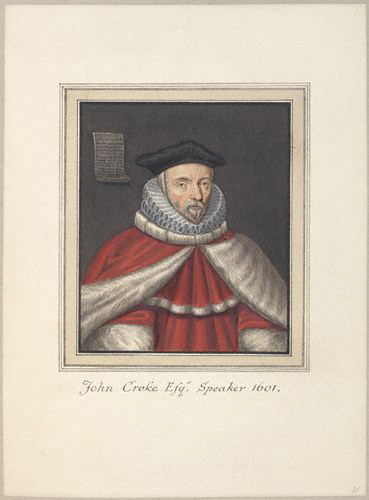10th Parliament of Queen Elizabeth I on:
[Wikipedia]
[Google]
[Amazon]
 The 10th Parliament of Queen Elizabeth I was summoned by
The 10th Parliament of Queen Elizabeth I was summoned by
 The 10th Parliament of Queen Elizabeth I was summoned by
The 10th Parliament of Queen Elizabeth I was summoned by Queen Elizabeth I of England
Elizabeth I (7 September 153324 March 1603) was Queen of England and Ireland from 17 November 1558 until her death in 1603. Elizabeth was the last of the five House of Tudor monarchs and is sometimes referred to as the "Virgin Queen".
El ...
on 11 September 1601 and assembled on 27 October 1601. It was to be her final Parliament.
At the State Opening of Parliament the Lord Keeper
The Lord Keeper of the Great Seal of England, and later of Great Britain, was formerly an officer of the English Crown charged with physical custody of the Great Seal of England. This position evolved into that of one of the Great Officers of Sta ...
Thomas Egerton explained that the Parliament had been called to authorise the replenishment of the Queen's coffers due to the cost of the war in Ireland and the ongoing threat of Spanish invasion. He also indicated that the Queen wished to see the Parliament dissolved by Christmas. John Croke
Sir John Croke (1553 – 23 January 1620) was an English judge and politician who served as Speaker of the English House of Commons between October and December 1601. He also served as Recorder of London, and won the City of London constituen ...
, Recorder of London
The Recorder of London is an ancient legal office in the City of London. The Recorder of London is the senior circuit judge at the Central Criminal Court (the Old Bailey), hearing trials of criminal offences. The Recorder is appointed by the Cr ...
and MP for London
London is the capital and largest city of England and the United Kingdom, with a population of just under 9 million. It stands on the River Thames in south-east England at the head of a estuary down to the North Sea, and has been a majo ...
, was appointed Speaker of the House of Commons Speaker of the House of Commons is a political leadership position found in countries that have a House of Commons, where the membership of the body elects a speaker to lead its proceedings.
Systems that have such a position include:
* Speaker of ...
.
The question of the subsidy was debated and agreed by November 9 and Parliament turned to other matters. The main issue of the day was the question of the abuse of monopolies. The Crown had for many years granted profitable monopoly rights to individuals in return for favours rendered to the crown, thereby raising the prices of the goods and services involved. Parliament considered this as at least an abuse of Royal privilege and at worst an illegal practice. Previous promises by the Crown to redress the problem had not been fulfilled. Feelings on the issue were so strong that Elizabeth was forced to defuse the situation by inviting 141 MPs to her palace where she delivered the Golden Speech The Golden Speech was delivered by Queen Elizabeth I of England in the Palace Council Chamber to 141 Members of the Commons (including the Speaker), on 30 November 1601. It was a speech that was expected to address some pricing concerns, based on th ...
, in which she revealed that it would be her final Parliament (she was 68 years old) and won over the delegation with a speech addressing the love and respect she had for the country, her position, and the Members themselves. She did however commit herself to publishing by Proclamation her intention to abolish some patents and allow others to submit to trial by common law.
The remaining Parliamentary time was dedicated to social and economic matters. The Poor Law
In English and British history, poor relief refers to government and ecclesiastical action to relieve poverty. Over the centuries, various authorities have needed to decide whose poverty deserves relief and also who should bear the cost of hel ...
s of 1597-98 were codified into a new Act which remained on the Statute Book until 1834. A number of bills concerning alehouses and drunkenness, blasphemy, regulation of weights and measures, and the enforcement of church attendance failed to be passed into law. Nevertheless, a total of 19 public and 10 private measures did receive the royal assent.
Notable Acts of the Parliament
*Poor Relief Act 1601
The Poor Relief Act 1601 (43 Eliz 1 c 2) was an Act of the Parliament of England. The Act for the Relief of the Poor 1601, popularly known as the Elizabethan Poor Law, "43rd Elizabeth" or the Old Poor Law was passed in 1601 and created a poor ...
* Charitable Uses Act 1601
The Charitable Uses Act of 1601 (known as the ''Statute of Elizabeth'') is an Act of Parliament, Act (43 Eliz I, c.4) of the Parliament of England. It was repealed by section 13(1) of the Mortmain and Charitable Uses Act 1888 (c.42) (but see sect ...
See also
* Acts of the 10th Parliament of Elizabeth I *List of parliaments of England
This is a list of parliaments of England from the reign of King Henry III, when the '' Curia Regis'' developed into a body known as Parliament, until the creation of the Parliament of Great Britain in 1707.
For later parliaments, see the List ...
References
* {{cite web, url=http://www.historyofparliamentonline.org/volume/1558-1603/parliament/1601, title=10th Parliament of Elizabeth I, 43 Eliz. I, publisher= History of Parliament Online, accessdate= 3 November 2017 1601 establishments in England 1601 in politics